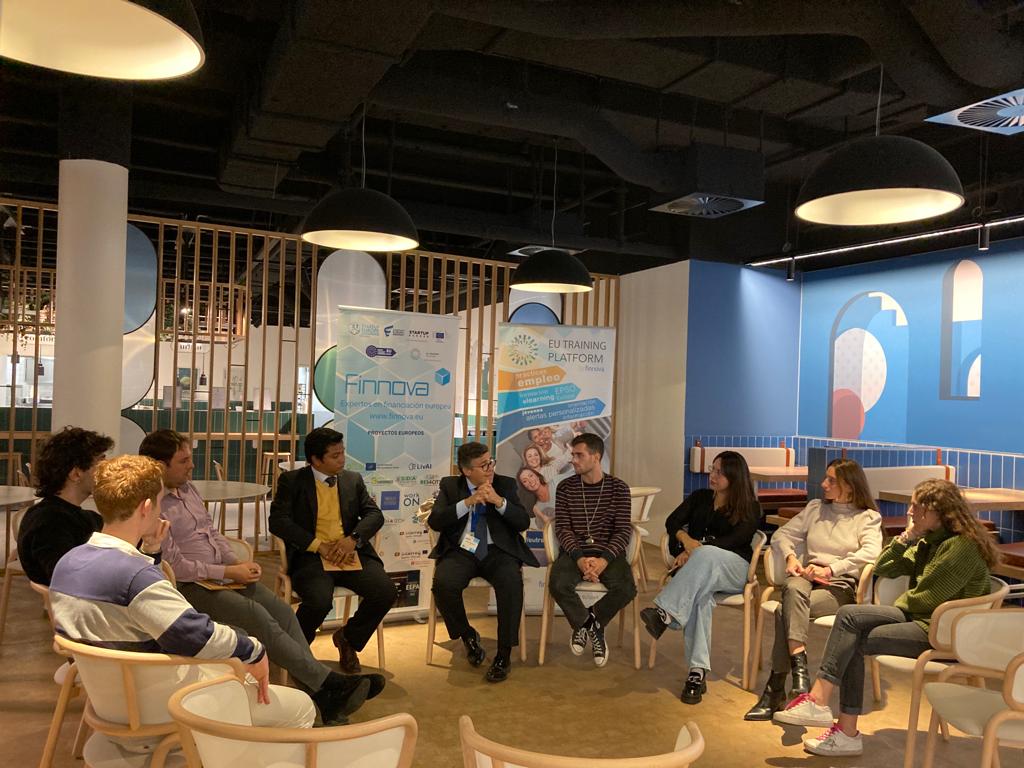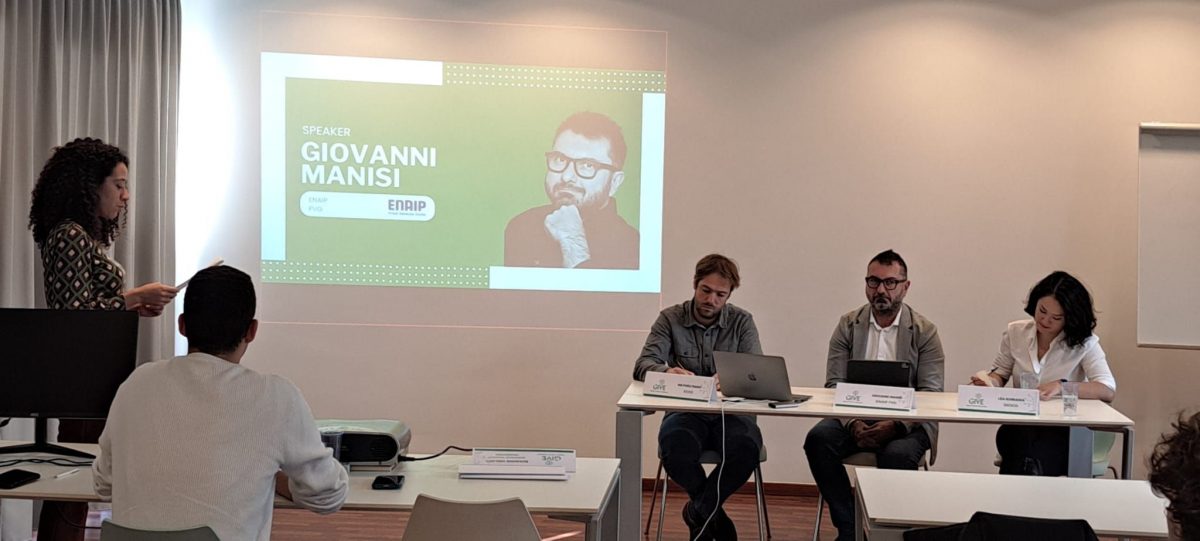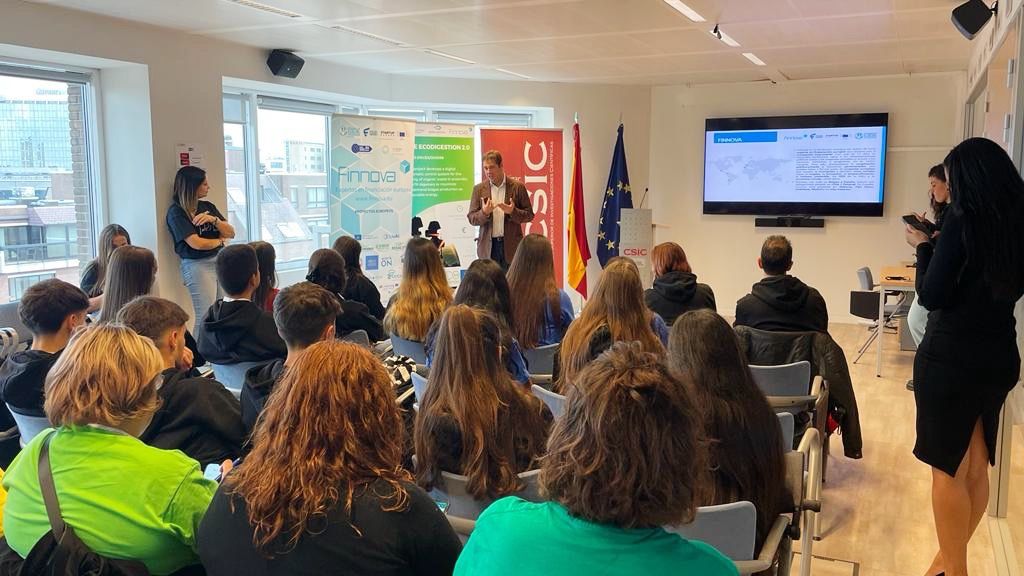- The forum was attended by Dr. Rafael Escamilla, Director of External Relations of the Instituto Valenciano de Competitividad Empresarial (Valencian Institute of Business Competitiveness).
- The event covered topics such as the work of development agencies, the promotion of innovation and the challenges faced by SMEs.
13/10/2023, Brussels. Yesterday, Thursday October 12th, Finnova’s offices in Brussels hosted the V. Next Talent Generation Forum, with the participation of Dr. Rafael Escamilla Domínguez, Director of External Relations of the Instituto Valenciano de Competitividad Empresarial (IVACE). This space was used to explain the work of development agencies and to put his experience at the service of our team in Brussels.
The first part of the forum focused on the role of the regions within the European Union and the internationalization and innovation as a factor of European development. Rafael Escamilla highlighted the importance of regional development agencies, regional programs to support business competitiveness and business incubators, the implementation of technology center networks, the digitization of SMEs, and business sustainability policies, among others.
On development agencies, the speaker drew on his extensive experience as a member of the executive committee of EURADA (European Association of Development Agencies) and secretary general of the ADR forum (Spanish Association of Regional Development Agencies) to explain the work of these large networks of development agencies and their importance for the competitiveness and growth of SMEs. “We are in charge of coordinating the participation of companies, we guide regional policies that support business support programs in R&D&I, sustainability or entrepreneurship. We provide interlocutors to entities and companies when embarking on projects, we look for research centers to create consortiums,… in short, we are dynamizers”.
In the second part of the forum, our team put on the table several issues that were discussed in this space. The first of the issues to be addressed was the textile sector and its adaptation to the 2030 Agenda and the European Union’s sustainability objectives. Rafael Escamilla stressed the importance of this sector, as well as mature industrial sectors, being able to adapt to these new guidelines, remarking that beyond the speed at which they meet the objectives, “the importance is to be on the way”. He also added the need to show SMEs in the sector the tools they have to be more competitive, such as technology centers or the use of European funds.
Precisely, European funds were the next topic on the table. Escamilla took the opportunity to highlight some of the problems that are occurring in order for this aid to reach the real economy, given the sometimes overly complex regulatory situation.
The last topic of the forum focused on the business skills most in demand when it comes to entrepreneurship, and Escamilla drew on his experience in the sector to advise our team in this area. First, he stressed the importance of knowing the context in which one intends to undertake (knowing the state of the situation, the real needs of the market, market niches, ways to differentiate oneself from competitors, etc.). Secondly, he emphasized the interest that the entrepreneur must put in structuring an adequate, realistic financial plan that is adjusted to the company’s capabilities. As a last piece of advice on this area, Rafael Escamilla added that the most recent SMEs are adapting to the spaces where their activity is located, implementing local raw materials and linking innovation to the territories. “This is a very important step, taking into account the territorial imbalance that Spain has in innovation. The new economy marks us stronger poles focused on cities, and we must bet on innovation in uninhabited areas to curb depopulation, using the new environments of digitization or sustainability through proximity economies,” concluded Escamilla.
About Finnova:
Finnova is a Brussels-based organization dedicated to promoting innovation, research and investment in Europe. Its commitment to collaboration and training of young researchers fits perfectly with the EDGE project and its employability objectives.




